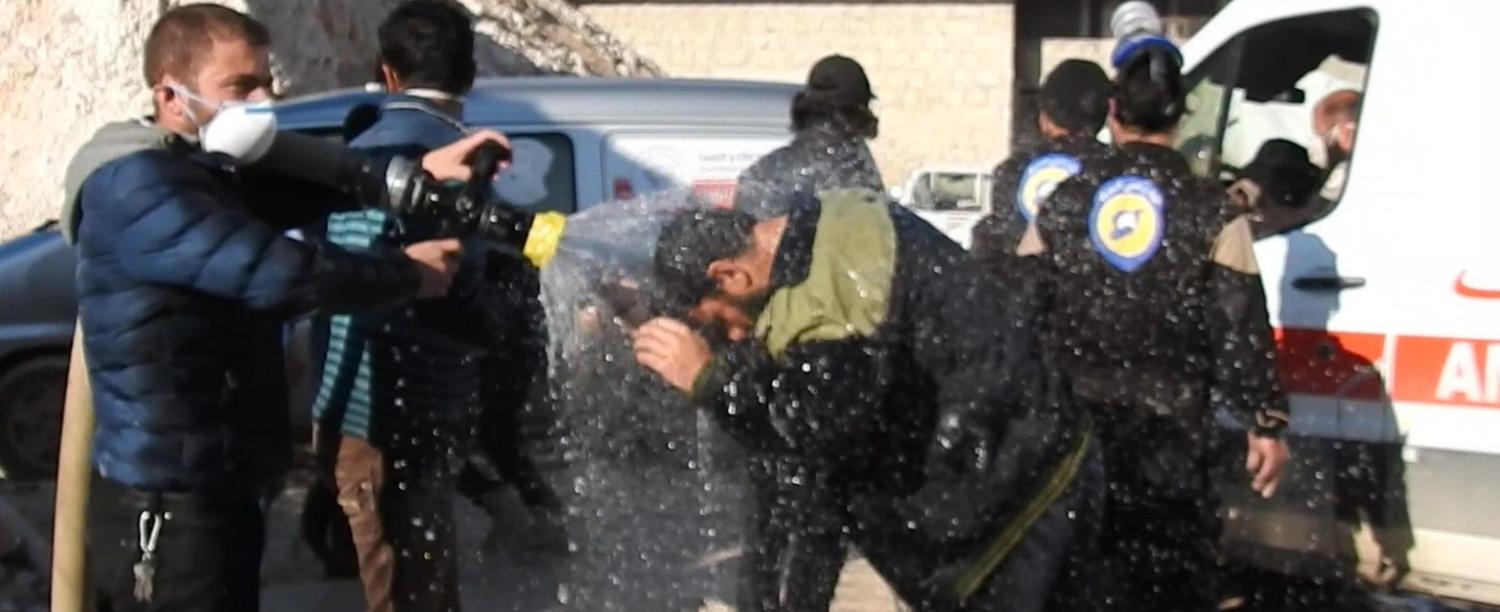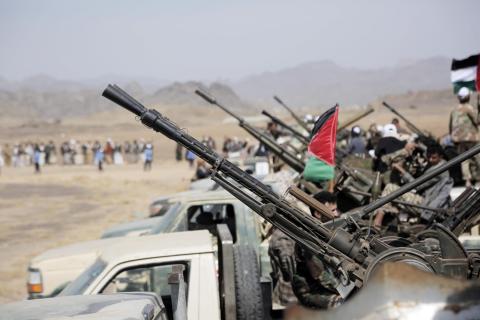The renewed use by the Assad regime of chemical weapons, possibly sarin, against civilian population centres in Syria - most recently in Idlib - is immoral, illegal, inhuman and counter-productive in every respect. It serves no military or political purpose. In terms of diplomacy, it is a complete disaster.
It has almost certainly embarrassed the Russians who, with the United States, were guarantors of the 2013 deal to rid Syria of its chemical weapons.
It raises major questions about the reliability of undertakings given by Assad to friends and enemies alike: if he is willing to restock and use chemical weapons against his own people, and in circumstances well short of an existential threat to his regime, against whom else might he use such weapons?
If assurances from Moscow that the ground rules of the struggle between Israel and Hezbollah will continue to be respected begin to look less credible - and the latest actions serve as evidence that Moscow’s wishes are not determinative in Damascus - the risks of escalation into a regional conflict will increase.
Already agitated by the entrenchment of Hezbollah’s influence and presence in Syria, as well as its replenished military capability in Lebanon, no-one will be watching the reactions from Moscow to these events more closely than the Israelis.
Tehran also has interests at stake. Themselves the victims of chemical warfare at the hands of Saddam Hussein’s Iraq, and working to a much larger agenda in the region that can only be damaged by the Syrian actions, the Iranians will be simultaneously concerned and affronted.
Meanwhile the Trump administration, after belatedly recognising the Assad regime can sustain itself as long as its strategic value to the Iranians and Russians outweighs the offense its odious behaviour gives, was recently showing signs of coming to terms with that reality. It will probably stick with that assessment of the regime’s longevity, at least.
But at the same time, the Syrians may have removed the possibility of Trump imagining Assad as an acceptable ally against Islamic State (IS). Tacit acceptance of a restoration of Syrian regime authority in areas to be liberated from IS - mostly for want of a better alternative - will be harder to sell to those engaged in US policy debates who have long resisted such an accommodation.
The developing discussion among western countries about reconstruction in Syria and the ways of delivering economic assistance without rewarding the regime will also be affected. Ultimately this will be to the detriment of the Syrian people, including the displaced and refugee communities most in need of practical support.
Although chemical weapons have been part of conflicts in the Middle East since the British used mustard gas in Gaza in 1917, no country admits to their use. The international condemnation of the tragic events in Idlib has been strong, and deservedly so.
It remains pointless, however, to attach calls for Assad’s removal to such condemnation, in the absence of any credible means of bringing his departure about in ways that would serve the overall interests of the parties to the conflict.
The only response that will matter to Assad is that which comes from Moscow and Tehran. The best one can hope for is that, because both Russia and Iran stand to lose from this situation, they will act in tandem to deliver to Assad a credible threat of causing pain to his interests as well, if he chooses to disregard their concerns and advice.
For the civilians of Idlib, and Syrians in general, the horror will continue.

